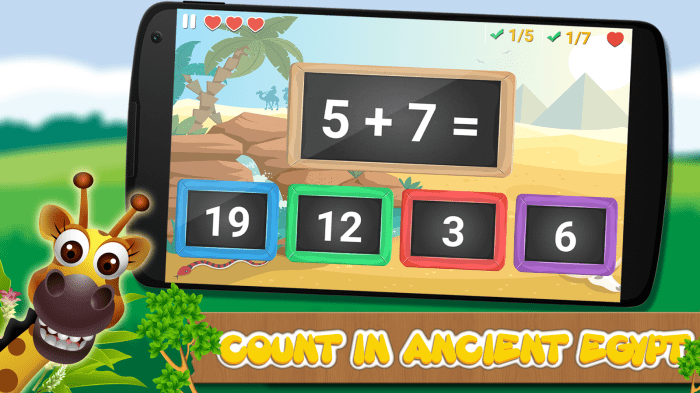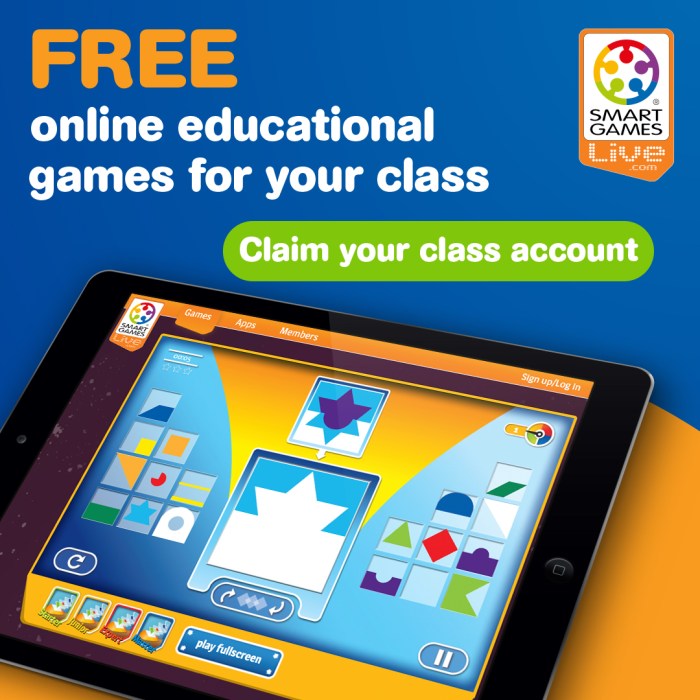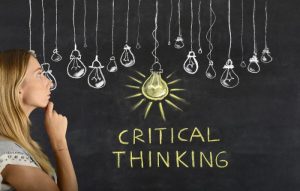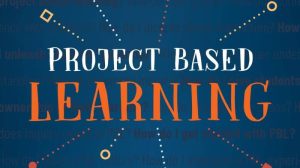
Embark on a journey with Free Educational Games, where learning becomes fun and interactive for everyone, from kids to adults. Uncover the exciting world of educational gaming and its myriad benefits.
Delve deeper into the realm of educational games and discover how they revolutionize traditional teaching methods.
Education Definition

Education is the process of acquiring knowledge, skills, values, beliefs, and habits through teaching, training, or research. It plays a crucial role in shaping individuals and societies by providing the tools necessary for personal and professional growth.
Goals and Objectives of Education
Education aims to empower individuals with the knowledge and skills needed to achieve personal fulfillment, contribute to society, and adapt to an ever-changing world. The objectives of education include promoting critical thinking, fostering creativity, and instilling ethical values.
Types of Education
- Formal Education: This type of education is structured, classroom-based, and leads to recognized qualifications such as degrees, diplomas, and certificates.
- Informal Education: Informal education occurs outside the traditional classroom setting and is often self-directed or experiential, such as learning from family, peers, or the community.
- Non-formal Education: Non-formal education is organized educational activities that do not follow the formal education system, catering to learners of all ages and backgrounds.
Education Essay
Education plays a crucial role in both personal and professional development. It equips individuals with knowledge, skills, and values that are essential for success in various aspects of life. In this essay, we will explore the significance of education in shaping individuals and societies, as well as its impact on economic growth and social progress.
Significance of Education in Personal and Professional Development
Education is the key to unlocking one’s full potential. It provides individuals with the necessary tools to navigate through life, make informed decisions, and pursue their goals. In a professional setting, education enhances employability, improves job performance, and opens up opportunities for career advancement. Continuous learning and skill development are essential in today’s rapidly changing job market, where adaptability and innovation are highly valued.
- Education fosters critical thinking and problem-solving skills, enabling individuals to analyze situations, make sound decisions, and find creative solutions.
- It helps individuals build self-confidence, self-discipline, and a sense of responsibility, which are essential for personal growth and success.
- Education instills values such as respect, integrity, and empathy, shaping individuals into responsible citizens who contribute positively to society.
Role of Education in Shaping Individuals and Societies
Education is a powerful tool for social transformation. It empowers individuals to become active participants in their communities, promoting social cohesion, diversity, and inclusivity. Through education, individuals gain a deeper understanding of themselves, others, and the world around them, fostering empathy, tolerance, and global awareness.
- Education promotes equality and social justice by providing everyone with equal opportunities to learn and succeed, regardless of their background or circumstances.
- It helps break the cycle of poverty and inequality by equipping individuals with the skills and knowledge needed to improve their quality of life and contribute to economic development.
- Education plays a vital role in preserving and transmitting cultural heritage, values, and traditions, ensuring their continuity across generations.
Impact of Education on Economic Growth and Social Progress
Education is a driving force behind economic growth and social progress. It is an investment in human capital that yields long-term benefits for individuals, communities, and nations. A well-educated population is more productive, innovative, and adaptable, leading to higher levels of economic development, competitiveness, and overall well-being.
- Education enhances workforce productivity by equipping individuals with the skills and knowledge needed to perform effectively in a rapidly evolving labor market.
- It fuels technological advancements, scientific discoveries, and cultural innovations that drive economic growth, social development, and global competitiveness.
- Education promotes sustainable development by raising awareness about environmental issues, social inequalities, and human rights, inspiring individuals to take action and create positive change.
Education Games
Using educational games in learning can have numerous benefits for students. These games often make learning more engaging, interactive, and fun, which can help improve retention and understanding of the material. Additionally, educational games can cater to different learning styles, making it easier for students to grasp complex concepts.When comparing traditional teaching methods with educational games, it is evident that games provide a more hands-on and immersive approach to learning.
While traditional methods may rely on lectures and textbooks, educational games offer a more dynamic and interactive experience that can enhance critical thinking, problem-solving skills, and collaboration among students.
Popular Educational Games and Their Effectiveness
Some popular educational games include:
1. MinecraftEdu
Helps students learn about various subjects such as history, geography, and math through building and exploration.
2. Kahoot!
A quiz-based game that encourages student engagement and participation in the classroom.
3. Prodigy
Uses a role-playing game format to teach math concepts and skills to students.These games have shown effectiveness in improving student motivation, engagement, and academic performance. By leveraging the power of gamification, educational games have the potential to transform the way students learn and retain information in the classroom.
Education History
Education has a rich history that has evolved over centuries, shaping the way we approach teaching and learning today. From ancient civilizations to modern educational practices, key milestones and influential figures have played a crucial role in the development of education as we know it.
Ancient Education
Education in ancient civilizations such as Mesopotamia, Egypt, and Greece focused on imparting knowledge and skills essential for survival. Subjects like mathematics, literature, and philosophy were taught through oral traditions and apprenticeships.
Medieval Education
During the Middle Ages, education was primarily provided by the church and focused on religious teachings. Monasteries and cathedral schools were the centers of learning, where Latin and theology were the main subjects of study.
Renaissance and Enlightenment
The Renaissance period brought a renewed interest in classical learning and humanism, emphasizing the importance of critical thinking and individualism. The Enlightenment further promoted rationality and scientific inquiry, laying the foundation for modern educational principles.
Modern Education System
The Industrial Revolution led to the establishment of compulsory education systems, aiming to provide basic literacy and numeracy skills to the masses. Educational reformers like Horace Mann and John Dewey advocated for universal education and child-centered learning approaches.
Major Educational Theorists
Educational theorists such as Jean Piaget, Lev Vygotsky, and Maria Montessori have significantly influenced modern education practices. Piaget’s theory of cognitive development, Vygotsky’s sociocultural theory, and Montessori’s emphasis on hands-on learning have shaped pedagogical approaches in schools worldwide.
Education Film

When it comes to portraying education in popular films, it is interesting to see how filmmakers shape our perception of the education system. Films have the power to influence how we view teachers, students, schools, and the overall learning experience. Themes related to education in films often reflect societal issues, struggles, and triumphs within the educational setting.
Portrayal of Teachers in Films
- Teachers portrayed as inspirational figures who make a difference in students’ lives.
- Some films depict teachers facing challenges in the classroom and overcoming obstacles to connect with students.
- Teachers shown as mentors, role models, and catalysts for personal growth in students.
Student Life in Films
- Students depicted dealing with academic pressure, social dynamics, and personal struggles.
- Some films showcase the importance of friendship, support, and resilience among students.
- Exploration of themes like bullying, peer relationships, and self-discovery in the school environment.
School Settings in Films
- Portrayal of diverse school environments ranging from prestigious institutions to underfunded schools.
- Depiction of school culture, traditions, and the impact of the physical space on learning.
- Exploration of systemic issues within the education system such as inequality, discrimination, and lack of resources.
Education Banner
In today’s competitive educational landscape, institutions need to stand out in order to attract students and parents. One effective way to do this is through educational banners, which play a crucial role in promoting learning institutions and conveying important information.
Importance of Educational Banners
Educational banners serve as a visual representation of the values, offerings, and culture of an educational institution. They provide a platform to showcase important information such as programs, facilities, achievements, and upcoming events. Banners can create a lasting impression on viewers and help in building brand recognition for the institution.
Elements of an Effective Educational Banner
- Clear and concise messaging: Ensure the banner communicates key information in a simple and straightforward manner.
- Eye-catching design: Use vibrant colors, high-quality images, and engaging visuals to capture the attention of the audience.
- Relevant content: Include information that is relevant to the target audience, such as academic programs, extracurricular activities, and success stories.
- Contact information: Provide easy-to-find contact details for inquiries and admissions.
- Call to action: Encourage viewers to take the next step, whether it’s visiting the campus, attending an event, or applying for admission.
Tips for Designing Engaging and Informative Educational Banners
- Know your audience: Tailor the design and messaging of the banner to resonate with the target demographic.
- Keep it simple: Avoid cluttered designs and excessive text to ensure the message is clear and easily digestible.
- Use high-quality images: Invest in professional photography or graphics to enhance the visual appeal of the banner.
- Highlight unique selling points: Showcase what sets your institution apart from others to attract potential students.
- Optimize for readability: Choose legible fonts, appropriate font sizes, and a balanced layout for optimal readability.
Education Counselor

An education counselor plays a crucial role in guiding students through their academic and career choices, providing support and advice to help them achieve their goals.
Qualifications and Skills
To become an education counselor, one typically needs a bachelor’s degree in counseling, psychology, education, or a related field. Some positions may require a master’s degree or certification in counseling.
- Strong communication skills to effectively interact with students, parents, and faculty.
- Empathy and understanding to support students through challenges and decision-making processes.
- Knowledge of academic requirements, career pathways, and counseling techniques.
- Ability to analyze student data and provide personalized guidance.
Challenges and Rewards
Education counselors face various challenges, such as dealing with students’ diverse needs, balancing a heavy workload, and staying updated on educational trends. However, the rewards of this profession are immense, as counselors witness students’ growth, success, and fulfillment in achieving their academic and career aspirations.
Education Degree
Education degrees are an essential part of preparing individuals for careers in teaching, administration, curriculum development, and more. There are various types of education degrees available, each offering a unique set of curriculum and career opportunities. Pursuing an education degree can have a significant impact on future career prospects, providing individuals with the knowledge and skills needed to excel in the field of education.
Bachelor’s Degree in Education
A Bachelor’s degree in Education typically focuses on foundational principles of teaching, classroom management, and educational psychology. Graduates with a Bachelor’s degree in Education can pursue careers as elementary or secondary school teachers, educational assistants, or curriculum developers.
Master’s Degree in Education
A Master’s degree in Education offers advanced coursework in specialized areas such as special education, educational leadership, or curriculum design. Individuals with a Master’s degree in Education can pursue roles as school administrators, educational consultants, or instructional coordinators.
Ph.D. in Education
A Ph.D. in Education is the highest level of education degree one can achieve in the field of education. This degree focuses on research, theory, and advanced practice in education. Graduates with a Ph.D. in Education often pursue careers as college professors, researchers, or policymakers in the education sector.
In conclusion, Free Educational Games offer a dynamic approach to learning that is both effective and enjoyable, making education an engaging experience for all. Dive into the world of educational gaming and unlock endless opportunities for knowledge and growth.
Top FAQs
How can educational games benefit learners?
Educational games can enhance critical thinking, problem-solving skills, and subject understanding in a fun and engaging way.
Are educational games suitable for all age groups?
Yes, educational games are designed to cater to learners of all ages, from preschoolers to adults, offering customized learning experiences.
Do educational games replace traditional teaching methods entirely?
Educational games complement traditional teaching methods by providing an interactive and immersive learning experience that reinforces educational concepts.






